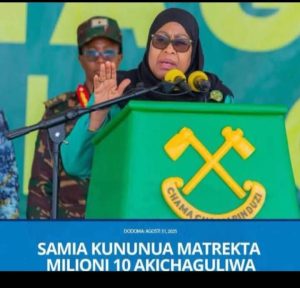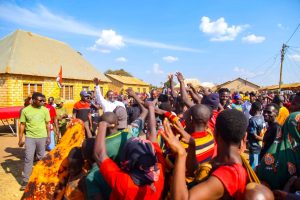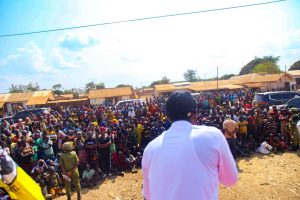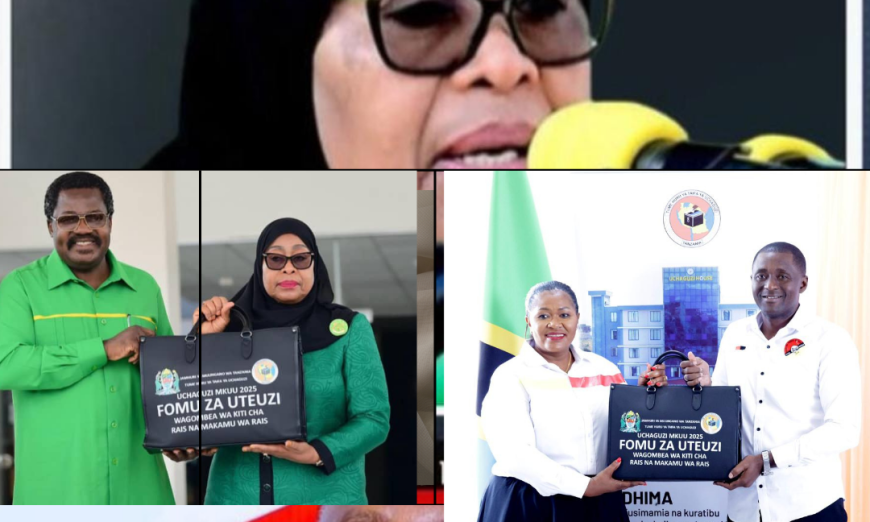Salum Mwalimu’s streetwise pitch to the youth clashes with President Samia Suluhu’s promise of stability and megaprojects. Three weeks into the campaign, Tanzanians face a sharp choice between continuity and change.
……………………………………………………………………………..
THREE weeks into Tanzania’s 2025 presidential campaign, two very different visions have emerged on the trail.
President Samia Suluhu Hassan of CCM has been projecting herself as ‘the guardian of stability and development,’ while CHAUMMA’s Salum Mwalimu, the self-styled “rais wa masela,” has positioned himself as ‘the agent of fresh ideas and grassroots empowerment.’
Continuity and big projects
On the campaign trail from Dar es Salaam to Kigoma, Samia has doubled down on her record. She points to the Standard Gauge Railway, the oil pipeline, new ports, airports, and road networks as proof that her government delivers. She is urging Tanzanians to “finish what we have started” by granting her another term come October 29.
From an independent observer’s point of view, her message is calm, managerial, and forward-looking. But it is not without criticism. Human rights defenders and the opposition argue that Samia has drifted from her early reformist stance.
Where she was once hailed for softening John Magufuli’s authoritarian edge, she is now accused of retracing his steps. She is accused of orchestrating a shrinking civic space, sidelining and torturing opponents, and overseeing an election shunned by her major political rivals. For many voters, Samia’s focus on megaprojects feels distant from their daily struggles with rising costs and limited opportunities.

‘Rais wa masela’
By contrast, Salum Mwalimu has seized the stage with fiery populism. He has been promising pensions for retirees, wealth creation for common people, rural road construction, and a fairer share of tourism and wildlife revenues for local communities.
But Mwalimu’s sharpest card is cultural. Branding himself as “rais wa masela,” meaning the president of ordinary hustlers and streetwise youth, he speaks directly to the country’s largest demographic. Tanzania’s young people are frustrated by unemployment and disillusioned with elite politics.
The slogan has become a movement, drawing chants at rallies and spreading on social media amidst stiff propaganda from both CCM and Mwalimu’s former party, CHADEMA.
CHAUMMA, once a fringe party, has become a vessel for protest energy after the major opposition party shunned the election it had vowed to prevent.
While doubts remain about his capacity, and his critics point to CHAUMMA’s limited national structure and question whether his promises are financially realistic, Mwalimu insists that he is an agent of change the nation needs.

A campaign of contrasts
The differences could not be sharper. Samia promises stability, continuity, and delivery through large-scale projects. Mwalimu offers rupture, renewal, and a people-first politics with a youthful edge.
While Samia speaks the language of completion and unity, Mwalimu speaks the language of disruption and empowerment. One projects authority, the other channels urgency.
The bigger Picture
Of course, the playing field is far from level. Samia enjoys the full weight of incumbency, state resources, and CCM’s organizational machine. Mwalimu fights for visibility, relying on charisma, social media, and grassroots energy.
His rise reflects both opportunity and limitation: opportunity, because the exclusion of other opposition figures has left CHAUMMA as the loudest dissenting voice; limitation, because an uneven system still tilts heavily toward CCM.

After 22 days on the trail, the campaign has crystallized into a simple but profound choice. Samia is saying, “stay the course, stability will bring development.” Mwalimu is saying, “the course is broken, it is time to start anew with a president who understands the street – rais wa masela.”
We still have about seven weeks to go. By all standards, this election is not just about who speaks loudest, but about whether Tanzanians believe the ballot box offers them a genuine choice.










